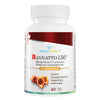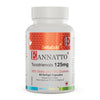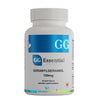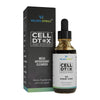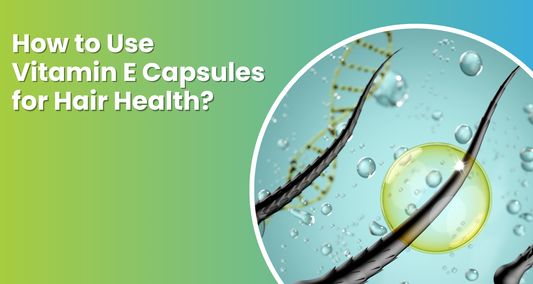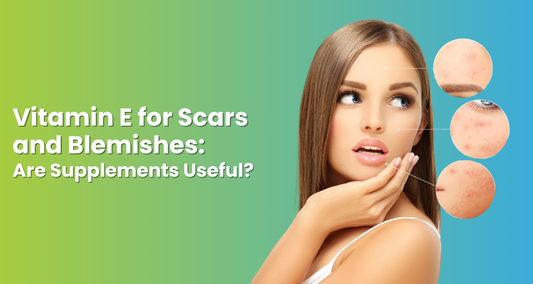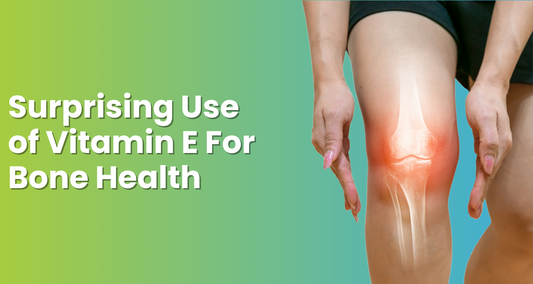Are you looking for what vitamins are good for hair growth and achieving luscious locks? Look no further than your diet! Your hair needs essential vitamins and minerals to maintain its health and promote growth.
By incorporating specific vitamins into your diet, you can nourish your scalp, strengthen hair follicles, and achieve the hair you desire.
Key Takeaways
- Vitamins play a crucial role in promoting healthy hair growth.
- Incorporating specific vitamins into your diet can nourish your scalp and strengthen hair follicles.
- What vitamins are good for hair growth? Vitamin A, B-vitamins, vitamin C, vitamin D, vitamin E, iron, and zinc are all essential for hair growth.
- Other nutrients, such as omega-3 fatty acids and protein, also play a role in promoting healthy hair growth.
- Consult with a healthcare professional before making significant dietary changes or taking supplements and vitamins for hair health.
Understanding Hair Growth: The Basics
Before we dive into the specific vitamins to answer this- what vitamins are good for hair growth, it's crucial to understand how hair grows and the role that essential nutrients play in maintaining healthy locks. Hair growth occurs in three phases: the anagen phase, the catagen phase, and the telogen phase.
The anagen phase is the active growth phase, during which hair can grow up to half an inch per month. This phase typically lasts between two and eight years, depending on genetics and other factors.
The catagen phase is a transitional phase that lasts around two weeks, during which hair follicles shrink and hair growth slows down. Finally, the telogen phase is the resting phase, which lasts around three to four months before hairs fall out and the cycle starts again.
For hair to grow and flourish, it requires a variety of nutrients, including vitamins, minerals, and proteins. Essential vitamins for healthy hair include vitamins A, B, C, D, and E, all of which serve different roles in supporting healthy hair growth and preventing hair loss.
Let's take a closer look at these essential vitamins and how they contribute to maintaining hair health:
|
Vitamin |
Role in Hair Growth |
Dietary Sources |
|
Vitamin A |
Nourishes scalp, promotes sebum production |
Sweet potatoes, carrots, spinach, kale, eggs, liver |
|
Biotin (B7) |
Aids in the production of keratin |
Eggs, almonds, salmon, avocado |
|
Niacin (B3) |
Increases blood flow, supports hair growth |
Turkey, chicken, peanuts, mushrooms |
|
Pantothenic Acid (B5) |
Strengthens hair follicles, supports growth |
Broccoli, sweet potatoes, sunflower seeds |
|
Vitamin C |
Boosts collagen production, supports hair structure |
Oranges, strawberries, bell peppers, kiwi |
|
Vitamin D |
Stimulates hair follicles and improves density |
Fatty fish, egg yolks, mushrooms, fortified foods |
|
Vitamin E |
Improves blood circulation, supports hair growth |
Almonds, sunflower seeds, spinach, avocado |
|
Iron |
Prevents hair loss, supports growth |
Red meat, poultry, seafood, beans, spinach |
|
Zinc |
Supports overall hair health and growth |
Oysters, beef, spinach, pumpkin seeds |
As you can see, each vitamin plays a crucial and unique role in maintaining healthy hair growth. By consuming a well-rounded diet rich in these essential nutrients, you can nourish your hair from the inside out and promote luscious, strong locks.
Vitamin A: Nourishing Your Scalp
Vitamin A is a crucial nutrient for maintaining a healthy scalp, which is essential for promoting hair growth and achieving healthy, luscious locks. This vitamin helps produce sebum, an oily substance that naturally conditions and moisturizes the scalp, keeping hair hydrated and preventing breakage.
In addition to promoting scalp health, vitamin A also stimulates the production of hair follicle cells, supporting healthy hair growth and preventing hair loss. However, it's important to note that too much vitamin A can have the opposite effect and lead to hair loss, so it's essential to consume it in moderation and not exceed the recommended daily intake.
There are various dietary sources of vitamin A, including sweet potatoes, carrots, spinach, and kale. Incorporating these foods into your diet can help ensure you're getting enough vitamin A to promote scalp and hair health.
There are also supplements available that provide a daily dose of vitamin A, but it's essential to consult with a healthcare professional before adding any new supplements to your routine.
B-Vitamins: Fueling Hair Growth
The B-vitamin complex is crucial for healthy hair growth. Specifically, three B-vitamins - biotin, niacin, and pantothenic acid - help produce the protein keratin, which makes up hair strands and gives hair its strength and elasticity.
Biotin, also known as vitamin H, is commonly found in foods such as eggs, nuts, and whole grains. It's also available as a supplement for those with a biotin deficiency in their diet.
Niacin, or vitamin B3, can be found in fish, poultry, and beef, as well as in supplement form. Pantothenic acid, or vitamin B5, is abundant in foods such as chicken, avocados, and mushrooms, and can also be taken in supplement form.
Vitamins for Thicker and Stronger Hair
Incorporating these B-vitamins into your diet can help promote thicker and stronger hair. Biotin, in particular, has been shown to improve hair thickness and reduce hair loss in individuals with biotin deficiencies. Additionally, niacin can increase blood flow to the scalp, improving nutrient delivery to the hair follicles and promoting hair growth.
|
Vitamin |
Food Sources |
|
Biotin |
Eggs, nuts, whole grains |
|
Niacin |
Fish, poultry, beef |
|
Pantothenic Acid |
Chicken, avocados, mushrooms |
If you're not getting enough of these B-vitamins through your diet, consider taking a supplement to support your hair health. However, it's important to note that while B-vitamins are essential for hair growth, excessive intake of any single vitamin can negatively affect your health. It's always best to consult a healthcare professional before adding supplements to your routine.
Vitamin C: Boosting Collagen Production
Vitamin C is an essential nutrient that plays a crucial role in promoting healthy hair growth. As an antioxidant, it helps to protect hair follicles from damage caused by free radicals and supports the production of collagen, an important structural protein that is essential for hair health.
Collagen makes up a significant portion of the hair shaft, providing strength, elasticity, and resilience. Without sufficient levels of collagen, hair can become weak, brittle, and prone to breakage.
Luckily, there are a variety of natural sources of vitamin C that you can incorporate into your diet to promote healthy hair growth. These include fresh fruits and vegetables such as citrus fruits, berries, kiwi, and red bell peppers.
If you struggle to get enough vitamin C through diet alone, supplements can also be a valuable addition to your hair care routine. Look for supplements that contain at least 100% of the daily recommended value of vitamin C.
|
Foods High in Vitamin C |
Vitamin C Intake per 100g |
|
Guava |
228 mg |
|
Papaya |
62 mg |
|
Kiwi |
93 mg |
|
Strawberries |
58 mg |
|
Oranges |
53 mg |
Incorporating vitamin C into your hair care routine can help boost collagen production and support healthy hair growth.
Vitamin D: Strengthening Hair Follicles
Vitamin D is necessary for our overall health, but it's also a critical nutrient for hair growth. Research shows that low levels of vitamin D can lead to hair loss and other hair-related problems. This vitamin stimulates hair follicles, which are responsible for producing new hair strands.
One way to ensure you're getting enough vitamin D is by exposing your skin to sunlight. Ultraviolet B rays in sunlight stimulate vitamin D production in your body. However, excessive exposure to the sun can cause skin damage, so it's essential to protect your skin with sunscreen.
You can also get vitamin D from dietary sources, such as fatty fish (salmon, tuna, and mackerel), egg yolks, and mushrooms. You can take supplements to meet your nutritional needs if you're not getting enough vitamin D from sunlight or food sources.
The recommended daily intake of vitamin D varies depending on age, sex, and other factors - consult with a healthcare professional to determine the best dosage for you.
Vitamin E: Promoting Blood Circulation
Vitamin E is an essential nutrient that helps promote blood circulation, which is vital for delivering the necessary nutrients to the hair follicles. By ensuring adequate intake of vitamin E, you can support healthy hair growth and improve the overall health of your hair.
One of the benefits of vitamin E is that it is a natural antioxidant that helps prevent oxidative stress, one of the causes of hair loss. This nutrient helps protect the hair cells from damage and supports the regenerative process of hair growth. Vitamin E also promotes the production of sebum, a natural oil that keeps the scalp moisturized and nourished, supporting healthy hair growth.
To boost your intake of vitamin E, add nutrient-rich foods such as almonds, sunflower seeds, and spinach to your diet. Additionally, you can consider taking a vitamin E supplement to ensure you're meeting the recommended daily intake of this essential nutrient.
Iron: Preventing Hair Loss
Iron deficiency is one of the most common nutritional deficiencies in the world and can lead to hair loss. Iron is an essential mineral that plays a critical role in the production of hemoglobin, which carries oxygen in the blood. Without enough iron, hair follicles receive less oxygen, leading to weak and brittle hair.
If you're experiencing hair loss, it's crucial to get your iron levels checked by a doctor. Iron levels can be increased through dietary changes or supplements. Foods that are rich in iron include:
- Red meat
- Poultry
- Seafood
- Spinach
- Lentils
For people who don't get enough iron from their diet, supplements may be recommended. Iron supplements are available over the counter, but it's essential to consult with a healthcare professional before starting any new supplement regimen. Too much iron can be harmful and have adverse health effects.
Along with preventing hair loss, adequate iron intake promotes overall health by boosting energy levels and supporting immune function.
Zinc: Supporting Healthy Hair Growth
Zinc is one of the essential minerals required for healthy hair growth. It plays a critical role in the production of new hair cells and promotes the maintenance of the oil-secreting glands attached to hair follicles, ensuring adequate scalp moisture. Zinc also helps with nutrient absorption and boosts the immune system, both of which are crucial for healthy hair growth.
Zinc deficiency has been linked to hair loss and brittle hair, so ensuring you're consuming enough of this mineral is important. Natural sources of zinc include oysters, red meat, beans, nuts, and seeds.
Zinc supplements are also available, but it's important to be mindful of the recommended dosage. Overconsumption of zinc can have adverse effects and cause nausea, vomiting, and diarrhea. It is generally advisable to aim for a dietary intake of zinc, rather than relying on supplements alone.
Incorporating zinc-rich foods into your diet can help support healthy hair growth by nourishing hair follicles and promoting optimal nutrient absorption.
Other Nutrients for Hair Growth
While vitamins are crucial for healthy hair growth, other nutrients play a vital role in achieving luscious locks. Omega-3 fatty acids, for instance, help keep hair hydrated and may reduce inflammation of the scalp. Incorporating foods like salmon, chia seeds, and walnuts into your diet can help boost your omega-3 intake.
Protein is another essential nutrient for hair growth, as hair is primarily made up of protein fibers. A diet lacking in protein can cause hair to become dry, brittle, and weak. Adding sources of protein such as lean meats, beans, and eggs can help increase hair strength and thickness.
Vitamin Supplements vs. Nutrient-Dense Foods
While vitamin supplements can be a convenient way to increase your intake of certain vitamins, getting nutrients through whole foods is generally recommended. Whole foods offer a variety of vitamins and minerals in addition to fiber and other nutrients that are beneficial for overall health.
When it comes to hair health, consuming a balanced and varied diet rich in fruits, vegetables, whole grains, lean protein, and healthy fats is a good way to ensure you're getting the vitamins and nutrients your hair needs to thrive.
|
Nutrient |
Food Sources |
|
Omega-3 Fatty Acids |
Salmon, Chia Seeds, Walnuts, Flaxseeds |
|
Protein |
Lean Meats, Beans, Nuts, Eggs, Greek Yogurt |
By incorporating a variety of nutrient-dense foods into your diet, you can enhance the health and appearance of your hair while also promoting overall wellness.
Conclusion
If you're looking to achieve healthy, luscious locks, incorporating specific vitamins into your diet can make a significant difference. From vitamin A to zinc, each nutrient plays a critical role in promoting hair growth and maintaining overall hair health.
When looking at what vitamins are good for hair growth, it's essential to understand how these nutrients support hair health. By providing your scalp and hair follicles with the nutrients they need, you can strengthen hair strands, prevent hair loss, and promote new hair growth.
Remember, achieving optimal hair health is not a quick fix, and it requires a consistent effort to ensure you're getting the right nutrients your hair needs to thrive. So, make sure to include plenty of fresh fruits and vegetables, lean proteins, and healthy fats in your diet to support hair growth.
With a bit of patience and some dietary adjustments, you can give your hair the best chance to grow healthy and strong. So, give these vitamins for thicker hair a try and notice the difference in your hair health.
FAQs
What vitamins are good for hair growth?
Answer: Essential vitamins for hair growth include biotin, vitamin D, vitamin E, and vitamin A. These vitamins play crucial roles in maintaining healthy hair follicles and promoting strong, vibrant hair growth.
How do I choose the right multivitamin?
Answer: Consider factors like age, gender, health conditions, and specific needs. Look for a reputable brand that meets quality standards and provides nutrients tailored to your requirements.
Are there multivitamins for specific needs?
Answer: Yes, specialized multivitamins cater to needs like pregnancy, athletic performance, or immune support. Consult healthcare professionals to determine if a specialized multivitamin is necessary.
What is the recommended daily intake of vitamins and minerals?
Answer: Recommended intake varies based on factors like age and gender. Follow established guidelines or seek advice from healthcare professionals for personalized recommendations.
Are there natural vitamins that can enhance hair growth?
Answer: Yes, several natural vitamins for hair growth can be found in foods such as eggs, nuts, seeds, leafy greens, and fruits. These include biotin, vitamin E, vitamin A, and vitamin C, among others, which support optimal hair health when consumed as part of a balanced diet.
Which supplements are considered the best for promoting hair growth?
Answer: The best supplements for hair growth often contain a combination of essential vitamins and minerals, including biotin, vitamin D, iron, zinc, and collagen. These supplements are designed to support overall hair health and stimulate hair growth from within.
What are the benefits of multivitamins?
Answer: Multivitamins fill nutrient gaps, support overall health, and ensure optimal bodily functions by providing essential vitamins and minerals that may be lacking in your diet.
Can vitamins help strengthen hair and prevent breakage?
Answer: Yes, vitamins for strong hair can help strengthen hair strands and reduce breakage. Biotin, vitamin E, vitamin C, and vitamin D are particularly beneficial for improving hair strength and resilience.
What are some top picks for the best vitamins for hair growth?
Answer: Some top picks for vitamins for hair growth include biotin supplements, vitamin D supplements, and multivitamins formulated specifically for hair, skin, and nails. These supplements provide essential nutrients to support healthy hair growth and overall hair health.
Are there any natural remedies or treatments for promoting hair growth?
Answer: In addition to supplements, natural remedies such as scalp massages, essential oil treatments (like rosemary or peppermint oil), and dietary changes can also promote hair growth. These methods work synergistically with vitamins for hair growth to support optimal results.
How long does it typically take to see results from using vitamins for hair growth?
Answer: Results from using vitamins for hair growth can vary depending on individual factors such as genetics, diet, and overall health. While some individuals may notice improvements in hair growth and quality within a few weeks, it may take several months of consistent use to see significant results.
Are there any potential side effects of taking supplements for hair growth?
Answer: While vitamins and supplements are generally safe when taken as directed, some individuals may experience minor side effects such as upset stomach or allergic reactions. It's essential to follow recommended dosage guidelines and consult with a healthcare professional before starting any new supplement regimen.
